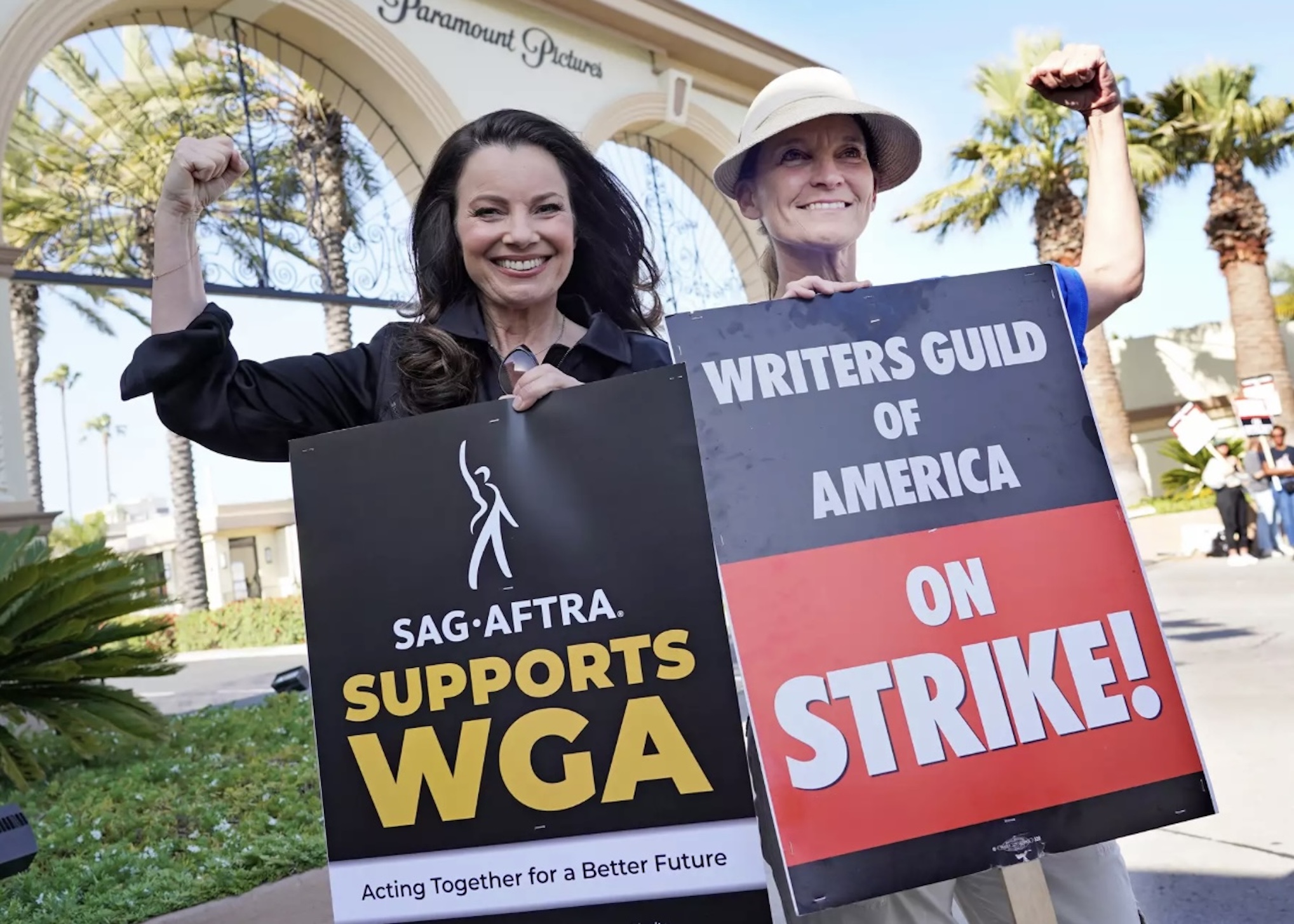Out-of-home advertising (OOH) — also known as outdoor media — is the marketing you see…
Media Production Pay Structures: A Strike-ingly Stagnant Model
Video killed the radio star, but who killed Saturday morning cartoons?
The dawn of streaming platforms such as Amazon, Netflix, and Hulu has brought about the demise of cable providers and the content they dished out, including television program reruns. This kill-switch to OTT services has completely transformed the way we consume media, allowing us to more freely, gluttonously gobble up movies, shorts, TV shows, and more.
Of the many mutations this has spurred in the industry are shorter seasons with longer episodes, typically released all at once with a significantly larger chunk of time between seasons.
We’re Obsessed With Entertainment… So What?
Those who don’t fear our fast-moving technology tend to see these changes as the innocuous effect of evolution taking its course. What they don’t see is the outright toxicity of outmoded payment models being used to calculate the amount of compensation emitted to media artists.
While the streaming experience certainly has legendary benefits, the salaries of actors and writers have not adapted to their Pokemon-like patterns… and we can’t catch ‘em all if trained professionals are conned.
Yeah, I totally made puns about Comic-Con. And yup, it still happened.
Cred: Daniel Knighton/Getty Images
A Moving Picture Is Worth a Thousand (Times Better Payment For) Words.
As streaming took over as our primary arena to watch scripted series, news programs, live sports, and more, writers’ salaries shrunk dramatically, as did the frequency of their assignments. Writers’ rooms—spaces in which epic storylines are forged and lower-level wordsmiths can wallop onto the scene—shared the same fate.
That’s only the tip of the iceberg. Think unpaid rewrites, unrestricted use of their excerpts without compensation, and sh*t pay for ‘new media’.
WGA leaders won’t stand for this lack of stability any longer. Acceptable changes in the way payment is calculated and opportunities are acquired must be implemented by AMPTP if they wish to thaw out their services.
Cred: Chris Pizzello/Invision/AP
Hollywood’s Biggest Stars Aren’t Out Picketing For Their Own Pockets.
News Flash: Writers aren’t the only ones whose salaries have crashed! Cracks in fiscal equity are forming on the other side of this solidarity equation, too.
The actors, stuntmen, and other live-action professionals who bring these scripts to life are in the same boat—albeit a different storm—in the age of streaming. They’ve been swimming in a dwindling fraction of the minimums, residuals, and work opportunities they deserve, making it “increasingly difficult […] to achieve and maintain a middle-class lifestyle working as a performer”—per SAG-AFTRA. How can any union member who is not a smash-hit stop themselves from sinking with sporadic pay?
(Photo Cred: Maci Mallaia/iStock)
Historically, syndicated reruns allowed actors to tread water between projects and provided a revenue stream long into the future. Without residuals trickling in, not only are non-stars financially stunted for months at a time, but they earn less money overall. All while AMPTP member companies continue to profit off of their vital contributions and refuse to make room for liveable compensation within their budgets.
SAG-AFTRA leaders like Fran Drescher will not let these performers be Jack and Rose-ed any longer, and they’re out fighting for collaboration. Riding the same wavelength, A-list actors like Leonardo Dicaprio have donated over $1M to SAG-AFTRA’s Financial Assistance Program to keep artists afloat as they wait for smoother waters.
Streaming Platforms Warrant a Whole New Set of Rules
Show biz doesn’t look the same as it did a decade ago, and—although its most valuable players are skipping a turn until new rulebooks are on the table—it will not stop releasing daunting new sidequests any time soon.
What sense does it make for AMPTP to keep playing moves on a payment grid developed during a time when your cable box was king?
Losing hands such as those dealt to the WGA and SAG-AFTRA are not unique to entertainment. To continue winning the money we deserve, we must keep a watchful eye on the cards in our own casinos, challenge our dealers, and cease participation when the cheating strikes.
When a game-changer steps in, we need to demand a new set of rules. Our core entertainment pros are showing us how by moving us closer to an equitable creative economy and further from a monopoly. In the face of an ever-changing world, we must pay close attention and act fast.
When it comes to unraveling the complexities of these strikes, we’ve long passed GO. Next, we’ll consider its implications for other labor fields and our daily lives. Spoiler alert! It’s not all about your fave TV shows.




